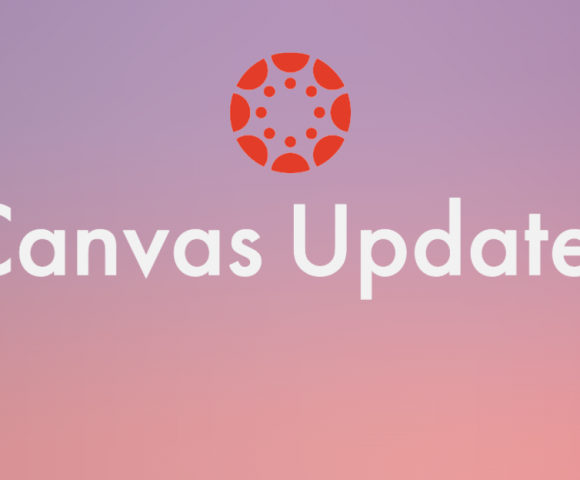
Planning for the Unknowns of Fall 2020
If you missed “Planning for the Unknowns of Fall 2020,” you may now view the recording of it. Organized by the Institute for Excellence in Teaching and Learning and Educational Technology Services, the event features a discussion for Chapman faculty on how to plan for teaching in face-to-face, online, hybrid, or hyflex environments this fall

Four weeks to a Canvas course
Dear Instructors, Back in January 2020 I did a 4 week series on how to set up your course in Canvas. A lot has happened since then! I’m reviewing those tips and doing another series to help you get ready for Fall 2020. Some of you have been on sabbatical, or busy finishing things up

You did it!
Dear Colleagues, Congratulations for adapting to all of the changes this past Spring. I marvel at your resilience and creativity in the midst of such a challenging time for our community. Last week I met with a handful of our Chapman students to ask them about how their instructors maintained a personal connection to them

Canvas Updates
Help for Unpublished Courses Feature Summary The Dashboard, Courses menu, and All Courses page display both published and unpublished courses. Multiple file uploads Summary Instructors can add multiple module content from the Course Home Page or the Modules page. Additionally, the Course Home Page has received small design modifications. Change Benefit This change helps instructors

Using Canvas to Connect with Students
Over the last two months, Canvas has been bringing in instructors from all over to talk about how they use Canvas. These streaming videos do last about an hour, but they are WORTH IT. If I share a video from this series, it’s because I have watched it, found it useful, and think it is

Canvas Gradebook Troubleshooting
End of Semester: Grading Wrap-up Set up your course Grading Scheme if you did not do so at the start of the semester. Double-check to make sure that the grading scheme on your syllabus matches the grading scheme in Canvas. A standard Chapman University grading scheme is automatically enabled in your course site, so it

Academic Integrity Statement Example
Example of Academic Integrity Statement, from Melissa Rowland-Goldsmith: Instructions for academic integrity for this exam: All cell phones and other electronic devices (except your computer or tablet) must be turned off. You are not allowed to use your computer or tablet except to: Use the Canvas quiz tab to keep track of your timer Email

How to Incorporate Coronavirus Related Content into Course Material
This blog post is authored by Gokcen Coskuner-Balli, faculty in the Marketing Department of Arygros School of Business and Economics (ASBE). In mid-March Chapman University among other schools across the country and the world moved to online education due to the COVID-19 social distancing measures. As faculty members we found ourselves preoccupied with how to

Bringing in a guest speaker via Zoom?
Eric Whitacre is an American composer, conductor, and speaker known for his choral, orchestral, and wind ensemble music. His works are performed worldwide by orchestras and choirs, while his ground-breaking Virtual Choirs have united singers from over 120 different countries. Adam Borecki, Director of Music Technology, recently hosted a successful Q&A between special guest Eric

Remote Instruction Tips
This blog post is authored by Derek Prate, Instructor in the Fowler School of Engineering. Hi reader! I’m Derek Prate, an Instructor for the Fowler School of Engineering, and current preschool teacher for my 4 and 5 year old kids. I’ve divided my blog up into some key points I’ve taken away from teaching remotely